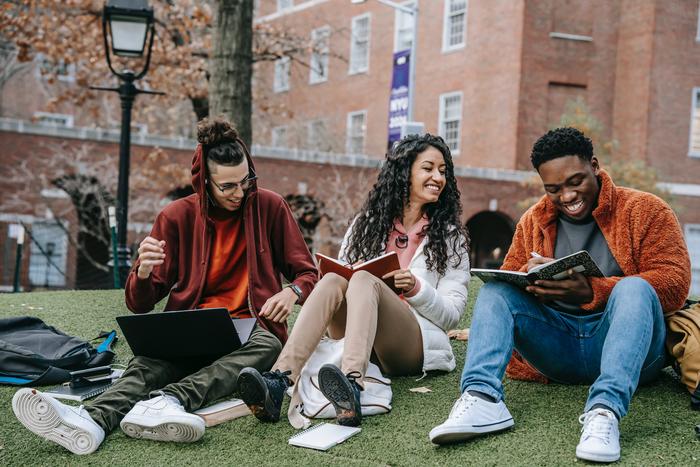In a study of nearly 5,000 North American first-year college students, those who were more extraverted, more agreeable, or less neurotic were more likely to feel a greater sense of belonging at school. Alexandria Stubblebine, an independent researcher in Ocala, Florida, USA, and colleagues present these findings in the open-access journal PLOS ONE on January 17, 2024.

Credit: Keira Burton, Pexels, CC0 (https://creativecommons.org/publicdomain/zero/1.0/)
In a study of nearly 5,000 North American first-year college students, those who were more extraverted, more agreeable, or less neurotic were more likely to feel a greater sense of belonging at school. Alexandria Stubblebine, an independent researcher in Ocala, Florida, USA, and colleagues present these findings in the open-access journal PLOS ONE on January 17, 2024.
Prior research has suggested that one’s personality traits are associated with one’s general sense of belonging. Within a college-specific context, other research has linked a secure sense of belonging to many positives, such as better academic performance and better mental health. Some studies have investigated relationships between students’ sense of belonging at school and their demographic traits, such as gender and race. However, very few studies have explored links between students’ personalities and sense of belonging at school.
To address that gap, Stubblebine and colleagues analyzed survey data from 4,753 first-year college students attending 12 different colleges and universities in the USA and Canada. The surveys evaluated each student’s sense of belonging at school and their levels of extraversion, agreeableness, openness, conscientiousness, and neuroticism—a collection of widely studied personality traits called “the Big Five.”
Statistical analysis of the survey responses showed that students with higher levels of extraversion or agreeableness tended to feel a greater sense of belonging after their first year at school. Those with greater neuroticism tended to feel a lower sense of belonging.
Additionally, students who were less neurotic, less open, and more extraverted had a higher likelihood of being enrolled in a large college. For students at large colleges, the statistical link between extraversion and belonging was stronger than for students at small schools.
These findings provide new insights into the links between personality and belonging at school, while also highlighting a potentially key role for school size. The authors call for more research to further deepen understanding, such as investigation of the potential influence of students’ race and ethnicity on these relationships, or the influence of other school characteristics beyond size. Such work could inform schools’ efforts to help students with different personalities and backgrounds build their sense of belonging and thrive at college.
The authors add: “Students who were more agreeable and more extraverted tended to have higher belonging in college, especially in big schools, and students who were more neurotic (that is, nervous and/or handle stress poorly) tended to have lower belonging in college. Additionally, and contrary to what many people might think, openness to new ideas and conscientiousness were unrelated to students’ feelings of belonging.”
#####
In your coverage please use this URL to provide access to the freely available article in PLOS ONE: https://journals.plos.org/plosone/article?id=10.1371/journal.pone.0295436
Citation: Stubblebine AM, Gopalan M, Brady ST (2024) Who feels like they belong? Personality and belonging in college. PLoS ONE 19(1): e0295436. https://doi.org/10.1371/journal.pone.0295436
Author Countries: USA
Funding: The authors received no specific funding for this work.
Journal
PLoS ONE
DOI
10.1371/journal.pone.0295436
Method of Research
Survey
Subject of Research
People
Article Title
Who feels like they belong? Personality and belonging in college
Article Publication Date
17-Jan-2024
COI Statement
The authors have declared that no competing interests exist.




